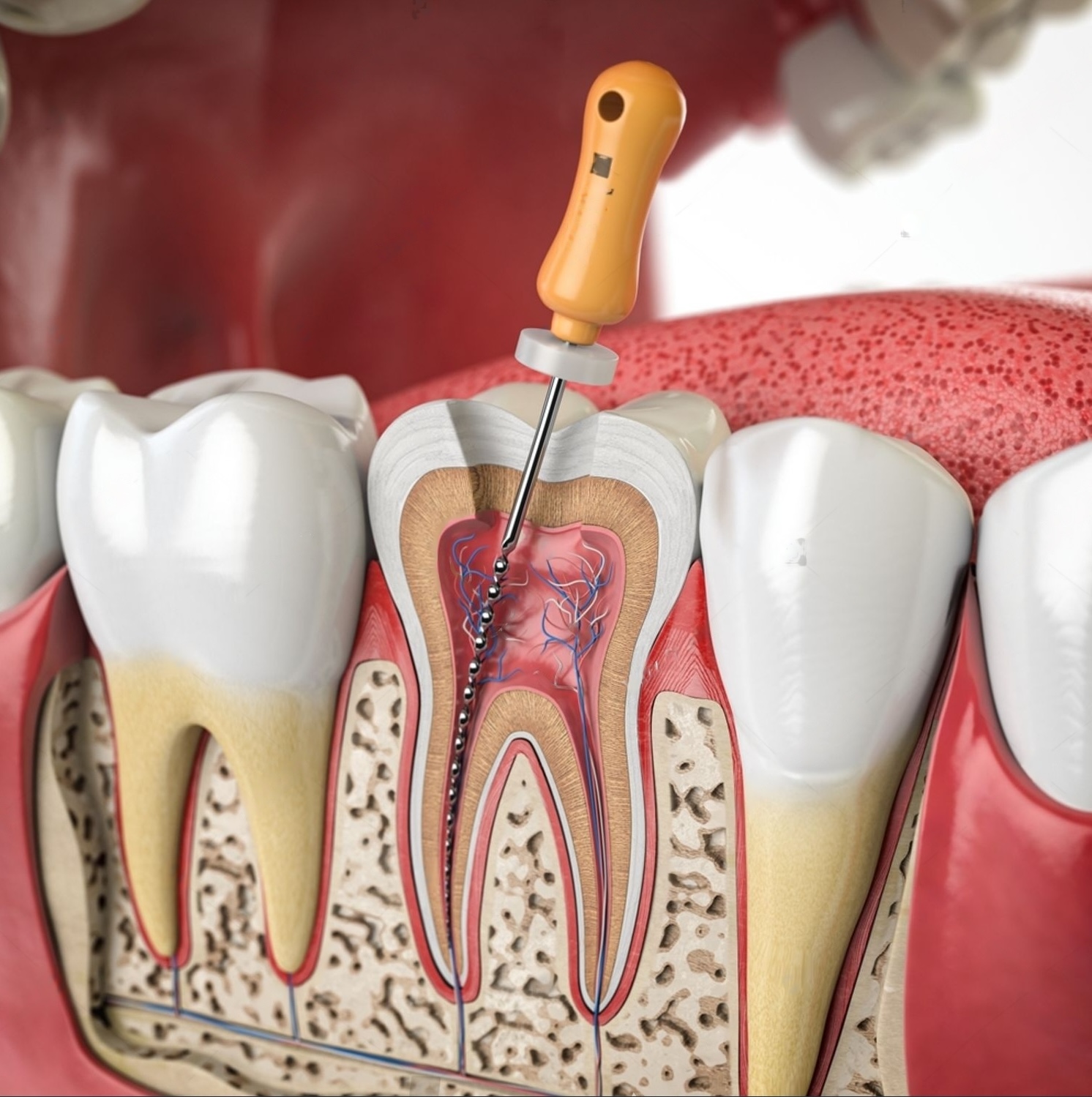Root canals are important for keeping your teeth healthy. And luckily, they’re not as painful as they used to be. Thanks to modern dental techniques, getting a root canal these days is pretty straightforward and pain-free.
Here’s a look at what you can expect when you go for a root canal treatment at Dainty Dental Care in Bayswater and Boronia.
What is a root canal?
A root canal is needed when the inside part of your tooth, called the pulp, gets infected or inflamed. This pulp is deep inside your tooth and goes down to your jawbone. It’s made up of nerves, blood vessels, and other tissues, and is covered by the hard outer layers of your tooth.
The infection can happen for several reasons, like tooth decay, cracks, or even after having a lot of dental work done. Bacteria from your mouth can get inside the tooth and cause this problem. If it’s not treated, it can get worse, and you might need a root canal to clean out the infected part and save your tooth.

So, in a nutshell, a root canal involves your dentist cleaning out the canals within the tooth’s root. It’s a common way to tackle tooth infections and prevent more serious dental troubles down the line.
Signs you need a root canal
Knowing for sure whether you need a root canal treatment requires a visit to your dentist. However, there are several warning signs to be aware of, as early detection can mean saving your tooth. Here are the symptoms to watch for:
- Severe tooth pain
- Increased sensitivity to hot and cold temperature
- Pain when touching the tooth
- Swollen gums and jaw
- Tooth discolouration
- Cracked or chipped tooth
- Gum pimples
- Loose tooth
- Pain while chewing or biting
These signs might point to an infection inside your tooth. To determine if a root canal is necessary, your dentist will check the tooth and might use X-rays for a clearer diagnosis. Remember, some infected teeth don’t always show clear symptoms, so regular dental check-ups are essential.
What happens during a root canal?
A root canal treatment typically involves 1-2 appointments, depending on the complexity of your case.
During the first appointment, your Bayswater and Boronia dentist takes an X-ray to look at the root canals and see if there’s any infection. They’ll numb the area around your tooth so you won’t feel any pain.

Then, they drill a hole in the tooth to get to the infected pulp inside, remove it, and clean the tooth. Medication may be applied inside the tooth to clear up any infection and then seal it with a temporary filling until the next appointment.
You may also be given a week before going back to the clinic to see how you would react to the medicine.
During your second visit, your dentist fills the inside of your tooth with a special material and seals the hole they drilled with a filling. Since your tooth is weaker after a root canal, a dental crown is often recommended to strengthen it.
This crown is custom-made and takes a couple of weeks to be ready. Once it’s done, you’ll go back to the dentist to have it fitted, which helps restore your tooth’s strength and appearance.
Is a root canal painful?
It’s normal to feel a bit of discomfort after a root canal since it’s a big dental procedure. The deep cleaning inside your tooth can irritate the nerves and gums, but this doesn’t last too long. Usually, over-the-counter painkillers are enough to ease this mild pain.
The most uncomfortable part might be getting the anaesthesia shot in your gums during the procedure. Dentists want you to be comfortable, so always tell them if you’re in pain.
After the root canal, your tooth might be sensitive for a few days, but this is because the infection that was causing pain is gone. However, if you have throbbing pain afterwards, it’s important to let your dentist know right away, as it could mean there’s still some infection left.
What happens after a root canal?
Right after your treatment, you might need to hang around until the numbness from the anaesthesia goes away, which could take about an hour. You can either rest at home or, if you feel okay, go on with your day.
Your tooth might be sensitive for a little while after the treatment, but this usually doesn’t last more than a few days.
To ensure your root canal lasts a long time, it’s important to take good care of your teeth. Here’s what you should do:
- Avoid chewing with the treated tooth for a little while.
- Keep up with regular brushing, flossing, and using mouthwash.
- Visit your dentist regularly for check-ups.

Getting root canal therapy may not be anyone’s idea of fun, but today’s technology has transformed it into a comfortable and successful procedure — often compared to having a simple filling. The great news is that most teeth treated with a root canal can stay healthy and strong for a lifetime.
If you need a root canal in Bayswater and Boronia or have more questions about the procedure, feel free to contact us today and we’d be happy to assist with your concerns.


